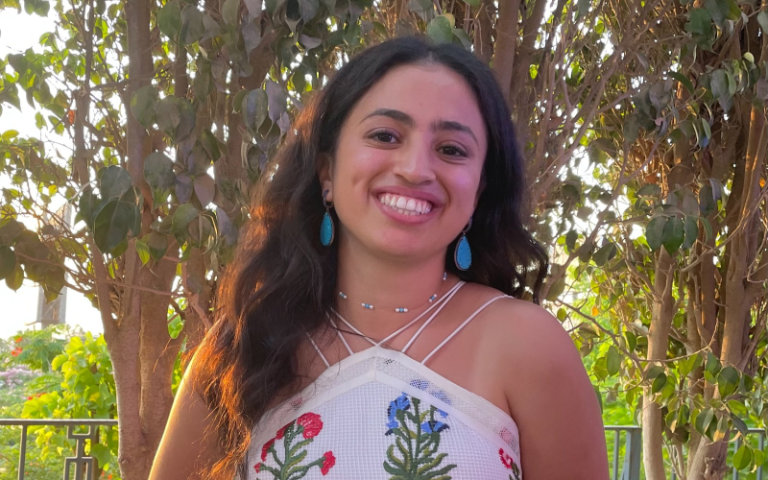Mona Mettawa is a Special and Inclusive Education MA student focusing on Specific Learning Difficulties, class of 2023. She talks to us about her experience studying at IOE.
 What is your educational background?
What is your educational background?

I started my journey of psychology at King's College London, where we touched on topics such as dyslexia, ADHD, and autism. Alongside my part time work within education centres, this sparked an interest and a commitment to learn more to be able to support those who need it the most.
What are your motivations for pursuing a graduate-level qualification?
After pursuing psychology at an undergraduate level, I wanted to engage more with special education and explore the different teaching methods to support such students. Growing up in Egypt, education on special needs was very limited and therefore support for children with special needs was also very limited - this is something that I would really like to change.
“By taking on this course, I hope to put this knowledge into practise to be able to give back to the communities that need it the most.
Why did you apply to UCL for graduate study?
UCL is renowned for its work and teaching methods in this field, leading the top research areas and therefore the top lecturers in the field.
What is the best thing about your course?
The diversity of students in the course and the lecturers as well - it provides different perspectives and cultures to the discussion, allowing us to understand the varied practices in those cultures. I would say that greatest difference is the acknowledgement and support for individuals with specific needs, whereas in African regions, there is still a high stigma and taboo around the subject.
What do you find interesting about your field of study and what inspires you?
The most interesting part of the course was when we discussed the practises that can be used, which are flexible and easily adapted, yet are not nearly as common in cultures I was raised in such as Egypt and Libya. This inspired me to utilise and modify such practises back to these countries. For example, the utility of everyday objects, such as a bowling pins game, to support children with their learning of phonics.
What are your career plans once you’ve completed your current programme of study at UCL?
I hope to begin my work in the field of special education in schools or centres within the Western cultures, and once I am confident enough, I hope to transfer my practise back home (Egypt and Libya).
Do you think studying at IOE is a good investment?
Most definitely, there are multiple tools and resources available for the students with continuous support from the staff also. The library provides a wealth of knowledge and content for us to learn from.
What is it like studying in London?
London is a very diverse city with a lot of opportunities; it definitely always keeps me on my toes but in an exciting way, full of potential and growth. This is evident even within the classroom and our diverse set of classmates.
“We are all able to learn from each other and gain some understanding as to how practices are in different regions of the world.
What's the most valuable element of your degree?
The content provided by the lecturers. I really appreciated the practical elements of the course, where we were introduced to the actual little things that can be done or used to help children within the classroom, whether it is printing on coloured paper, utilising everyday objects, or which children’s authors to recommend and read from for children with dyslexia.
What do you think of your time at IOE?
It has been really great! I’ve been appreciative of the content in the lectures so far, and I’m excited to go into my final year and make the most out of it.
Last updated 17 February 2023.
 Close
Close


